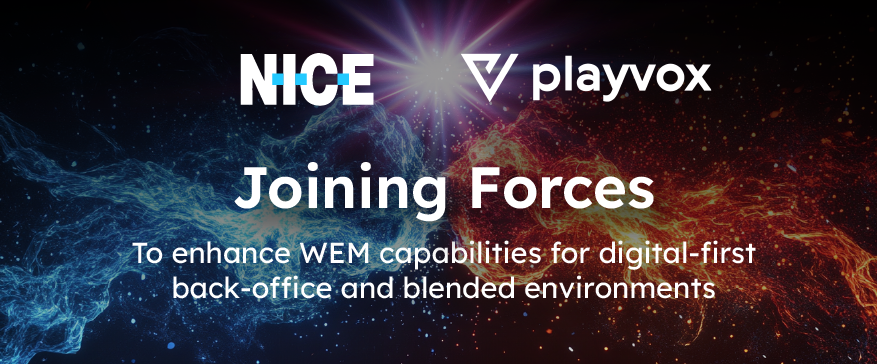5 Powerful Benefits of Cloud Contact Center Solutions
The pandemic permanently changed the contact center landscape. Or maybe we should say it sped up an inevitable evolution by five years or so.
Globalization and a younger workforce that prioritizes work-life balance are forces that likely would have compelled contact centers to gradually adopt a work from anywhere agent model. The pandemic lockdowns greatly accelerated this timeline.
Even though contact center facilities were shuttered, businesses still had to serve their customers, which meant setting up their agents to work remotely. Those with cloud contact center solutions were able to make the transition quickly. Agents just need a device and a good internet connection to be up and running.
In contrast, contact centers with older, on-premises technology often struggled, and as a result, many organizations fast-tracked their implementation of cloud solutions.
Cloud-based contact center solutions provide organizations with the flexibility and resilience required to weather disasters (such as worldwide pandemics) and to respond to current and future customer demands.
What is a cloud solution?
A cloud solution refers to on-demand IT software available through the internet and typically hosted by a technology vendor (referred to as a public cloud). Available services can include software, hardware, networks, databases, and storage. Businesses that use cloud solutions typically only pay for what they use and enjoy reduced technical infrastructure and IT overhead.
To borrow an analogy from Planergy, using a cloud solution is like using electricity in your home. You plug into existing resources, only pay for what you consume, and you don’t need a power plant in your yard.
A cloud solution familiar to many contact centers is software as a service (SaaS). In a SaaS arrangement, the software vendor hosts the application(s) and the contact center staff accesses the software through a web browser or mobile application.
SaaS providers are responsible for keeping software current, maintaining hardware, managing databases, and ensuring proper security measures are in place. A contact center that uses SaaS can expect to realize numerous powerful benefits. Let’s take a closer look.

Benefits of Cloud Based Contact Center Solutions
Businesses move to the cloud for many reasons. Cloud solutions are flexible, cost-effective, and enable new capabilities. Below are five major benefits offered by cloud technology.
1. Business Agility
As a contact center professional, you know that the nature of the business is changing rapidly these days due to factors such as artificial intelligence, workforce demographics, and consumer demand for omnichannel digital experiences. Cloud technology provides businesses with the agility to react to changing business conditions in the following ways.
- Quickly and easily scale. Cloud vendors typically have extra server capacity their clients can leverage. This means scaling can be as simple as paying for additional seats.
- Easily add capabilities. With cloud solutions, adding additional applications from your vendor can be done in a matter of days, versus the weeks or months it can take to implement new on-premises software. For example, if you already use Playvox workforce management software, adding our quality management module is straightforward and quick.
- Easily integrate with other solutions. Notice how we keep using the word “easily”? Cloud contact center solutions eliminate so much technical complexity. You’ll be much more successful at streamlining operations and delivering satisfying customer experiences if all of your contact center tools are integrated. Cloud solutions that use customizable APIs make these critical integrations a snap.

2. Work from Anywhere Agent Model
Because agents just need a device and a good internet connection, they can work from anywhere, including home, a physical contact center, or just about any other location. Many organizations are leveraging this capability to establish a hybrid work model, which gives agents choices about where they work.
Having flexibility in where your agents are located provides several benefits.
- Improve agent satisfaction and engagement. Many agents like working from home. It eliminates their commute as well as work-related expenses such as gas and clothing. And because they can roll out of bed and walk over to their computer, a work from home arrangement gives them back some time. Overall, work from anywhere can improve work-life balance.
- Lower facilities costs. When a good portion of your agents choose to work remotely, you can downsize your contact center facility, which will reduce expenses such as rent, utilities, fixtures, and maintenance.
- Expand to new labor markets. The work from anywhere capabilities provided by cloud solutions enable you to access new labor pools. This is particularly beneficial if your agents need specialized expertise, language fluency, or if you’ve already exhausted the local labor market.
- Ensure business continuity. As we have learned during the pandemic, having work from anywhere capabilities is essential for business continuity. In addition to lockdowns, these capabilities will help you survive ice storms, blizzards, hurricanes, and other business disruptions.
3. Access to the Most Current Release and Innovative Features
If you use on-premises technology, do you dread implementing new releases? Some organizations delay moving to the latest version of software because they believe it might “break” things. Plus it takes effort to thoroughly test. With a SaaS arrangement, you’re always using the most current release with the latest features. The vendor does thorough testing and has the expertise and motivation to fix any bugs.
4. Lower IT Overhead
When you use a cloud vendor, you gain technical expertise from the provider and lose administrative burden. You no longer need to perform support tasks such as loading software and managing servers. You can either cash in on the savings or redeploy your IT resources to work on more value-added projects.
5. Improved Security
One of the concerns some businesses have with moving to the cloud is data security. But with the right cloud vendor, your data can be more secure than ever. Vendors have more resources dedicated to security than many organizations do. Plus, their business model depends on keeping their clients’ data safe, so they’re going to ensure everything is locked up tightly.

When your WEM solutions are in the cloud, you can realize these many benefits and more. Cloud-based WEM applications provide a unified view of performance, queue status, and critical KPIs such as occupancy and schedule adherence. Additionally, they’re ideally suited to schedule, manage, and motivate a dispersed workforce. And interactive training and development will keep agents’ skills sharp regardless of where they’re located.
A work from anywhere agent model requires powerful cloud contact center solutions. Learn more by reading our eBook, “Considering a Hybrid Contact Center Workforce? Here’s Why You Need the Cloud.” Start your move to the cloud today and begin reaping the rewards of flexible contact center technology.







